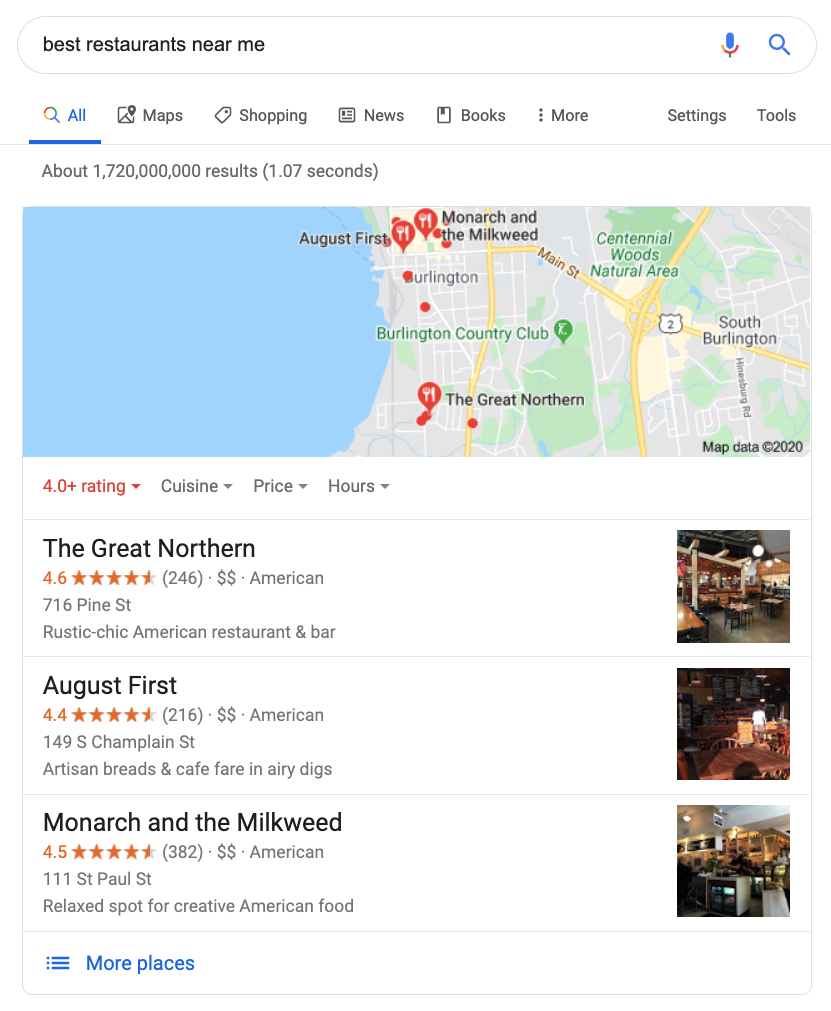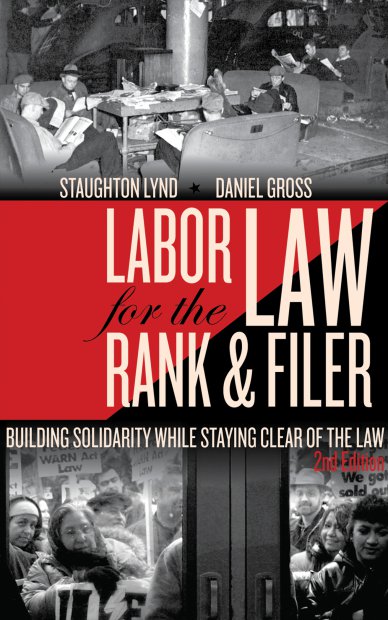What to do After a Minor Car Accident
Driving down the highway during rush hour, singing along to your favorite radio program, and suddenly, screech!, a car cuts you off, and you get clipped. No one is hurt, you both pull over, and you’re now thinking, “What do I do now?” When involved in a minor car accident, it’s easy to get flustered. But staying calm and having a plan will help you better handle the situation. Here are some steps to follow to ensure a smooth process.
Call the police and report the accident.
If anyone is injured, no matter how slightly, call 911 immediately. If there are no injuries, you should still call the police to report the accident. The police will create a report that can be helpful if there are any disputes about who was at fault. However, there are some cases where calling the police is not necessary. For example, if both drivers agree on who was at fault and there is no damage to either vehicle, you may not need to call the police. But when in doubt, always err on the side of caution.
Here are some additional tips for reporting a minor car accident to the police:
- Pull over to a safe location.
- Stay calm and don’t admit fault.
- Exchange information with the other driver(s) involved.
- Take pictures of the damage to both vehicles.
- Get the names and contact information of any witnesses.
- File a police report as soon as possible.
Minor Car Accident: What You Need to Do
You’re driving down the road, minding your own business, when suddenly, boom! You’re in a fender bender. It’s not a major accident, but it’s enough to rattle your nerves. What do you do now?
First and foremost, take a deep breath. It’s important to stay calm and collected in these situations. Then, follow these steps:
1. Check for injuries.
Make sure you and your passengers are okay. If anyone is injured, call 911 immediately.
2. Pull over to a safe location.
If possible, pull over to the side of the road. This will help prevent further accidents and allow you to exchange information with the other driver(s).
3. Exchange information.
Exchange your names, addresses, phone numbers, insurance information, and license numbers with the other driver(s). You’ll also want to take down the make, model, and license plate numbers of the vehicles involved.
4. Report the accident to your insurance company.
You should report the accident to your insurance company as soon as possible. They will be able to help you file a claim and get your car repaired.
5. Take pictures.
If possible, take pictures of the damage to both vehicles. This will help your insurance company assess the damage and determine how much your claim is worth.
6. Get a police report.
In some cases, you may need to get a police report. This is especially true if there are injuries or if the other driver is disputing fault.
7. Don’t admit fault.
It’s important not to admit fault to the other driver or the police. Even if you believe you’re at fault, it’s best to let the insurance companies sort it out.
8. Be prepared to cooperate.
Your insurance company will need to investigate the accident. Be prepared to provide them with all the information they need, such as the police report, pictures, and witness statements.
9. Don’t sign anything.
Don’t sign any documents or agreements with the other driver or their insurance company until you’ve had a chance to talk to your own insurance company.
10. Get a copy of your medical records.
If you’re injured in the accident, be sure to get a copy of your medical records. This will help you document your injuries and get the compensation you deserve.
Remember, the most important thing is to stay safe and calm after a minor car accident. By following these steps, you can help protect yourself and your rights.
Exchange information
After a minor car accident, it’s important to exchange information with the other driver(s) involved. This information will help you file an insurance claim and get your car repaired.
Here’s what you need to exchange:
- Names: Your full name and the full name of the other driver(s)
- Addresses: Your address and the address of the other driver(s)
- Phone numbers: Your phone number and the phone number of the other driver(s)
- Insurance information: The name of your insurance company, your policy number, and the expiration date of your policy. You may also want to take a picture of the other driver’s insurance card.
- License numbers: Your license number and the license number of the other driver(s)
- Make, model, and license plate numbers: The make, model, and license plate number of both vehicles involved in the accident
It’s also a good idea to take pictures of the damage to both vehicles. This will help your insurance company assess the damage and determine how much your claim is worth.
Once you have exchanged information, you should report the accident to your insurance company as soon as possible. They will be able to help you file a claim and get your car repaired.
What to Do After a Car Accident: A Minor Mishap Guide
Fender benders are a fact of life, and it’s best to be prepared in case you’re ever involved in one. Knowing what to do after a minor accident can help you stay safe, protect your rights, and get back on the road as quickly as possible. So, buckle up and let’s dive into the steps you should take if you find yourself in a fender bender.
Stay Calm
We know, we know – it’s easier said than done. But staying calm after a car accident is crucial. Adrenaline is pumping, and emotions are running high, but try to take a few deep breaths and collect your thoughts. Panicking will only make things worse, so stay focused and assess the situation.
Check for Injuries
First things first – check yourself and your passengers for any injuries. Even if you don’t feel anything right away, it’s possible to have delayed symptoms. If you or anyone else is injured, call 911 immediately. Don’t move anyone who is seriously injured unless they’re in immediate danger.
Take Photos
Documenting the accident is essential for insurance purposes. Take pictures of the damage to both vehicles, the surrounding area, any visible injuries, and anything else that might be relevant. These photos will help you prove what happened and make the insurance process smoother.
Exchange Information
Once you’ve ensured everyone is safe, it’s time to exchange information with the other driver(s) involved in the accident. Get their name, address, phone number, insurance information, and license plate number. Also, make a note of the make, model, and color of their car.
File a Police Report
In some cases, it’s necessary to file a police report. This is especially true if there are injuries, significant damage, or if you suspect the other driver was intoxicated or driving recklessly. The police report will provide an official record of the accident and can help protect you in case there are any disputes later on.
Contact Your Insurance Company
You should report the accident to your insurance company as soon as possible. They will guide you through the claims process and help you get your car repaired or replaced. Don’t forget to provide them with the information you gathered at the scene of the accident.
Hire a Lawyer (Optional)
If you’ve been seriously injured or the other driver is disputing fault, you may want to consider hiring a lawyer. A lawyer can help you protect your rights, negotiate with the insurance companies, and get you the compensation you deserve.
Car Minor Accident: What to Do When Sh*t Hits the Fan
You’re driving along, minding your own business, when BAM! Someone cuts you off and you slam into their bumper. It’s a minor fender bender, but it’s still a pain in the neck. Here’s what you need to do if you’re ever involved in a minor car accident:
1. Stay Calm
The first thing you need to do is stay calm. It’s easy to get caught up in the moment and start freaking out, but that’s not going to help the situation. Take a few deep breaths and try to collect your thoughts.
2. Check for Injuries
Once you’re calm, check yourself and the other driver for injuries. If anyone is hurt, call 911 immediately. Even if there are no apparent injuries, it’s a good idea to get checked out by a doctor just to be safe.
3. Exchange Information
Once you’ve checked for injuries, you need to exchange information with the other driver. This includes your name, address, phone number, insurance information, and license plate number. You should also take down the make, model, and color of both cars involved in the accident.
4. Get Witness Information
If there were any witnesses to the accident, get their names and contact information. Witnesses can provide valuable information to the police and your insurance company. They can also help to determine who was at fault for the accident.
5. Take Pictures
If possible, take pictures of the accident scene. This will help to document the damage and provide evidence to your insurance company. Be sure to take pictures of both cars involved in the accident, as well as any other relevant details, such as skid marks or traffic signs.
6. Report the Accident to the Police
In most states, you are required to report any car accident to the police, even if it’s a minor one. The police will create a report that can be used by your insurance company and the other driver’s insurance company to determine who was at fault for the accident.
7. File an Insurance Claim
Once you’ve reported the accident to the police, you need to file an insurance claim. Your insurance company will investigate the accident and determine how much you are entitled to receive for your damages. You may be entitled to compensation for repairs to your car, medical expenses, and lost wages.
8. Get a Copy of the Police Report
Once the police have completed their investigation, you can get a copy of the police report. This report will contain important information about the accident, such as the names of the drivers involved, the time and location of the accident, and the officer’s opinion on who was at fault.
9. Hire an Attorney
If you were seriously injured in the accident or if you believe that the other driver was at fault, you may want to consider hiring an attorney. An attorney can help you to get the compensation that you deserve for your injuries and damages.
Car Minor Accident
Whoa! Hold your horses there, partner. You just had a minor car accident, and you’re feeling a bit shaken up. We understand that accidents happen, but don’t fret; we’ll help you navigate the aftermath. Buckle up and let’s dive into what you should do after a minor car accident.
First and foremost, pull over to a safe location and check if everyone involved is okay. If anyone is injured, call for emergency services right away. Once the immediate danger has passed, it’s time to assess the situation. Exchange information with the other driver, including your names, contact details, insurance information, and license numbers.
Document the Accident
H2>
Whip out your smartphone and snap some photos of the damage to both vehicles. Capture the license plates, too. These photos will come in handy later on when you file an insurance claim. Don’t forget to write down a brief description of the accident, including the location, time, and any witnesses present.
Report the Accident to Your Insurance Company
Don’t delay; give your insurance company a buzz as soon as possible. They’ll guide you through the claims process and help you file a report. Be honest and provide all the details you have. Remember, your insurance company is on your side, so don’t try to hide anything.
Seek Medical Attention if Needed
Even if you don’t feel any pain right away, it’s always a good idea to get checked out by a medical professional. Some injuries, like whiplash, may not show up immediately. Plus, a doctor’s report will strengthen your insurance claim.
Don’t Admit Fault
It’s natural to want to apologize after an accident, but hold back on saying anything that could be construed as an admission of fault. Let the insurance companies sort out who was responsible. Remember, anything you say or do can be used against you later on.
Car Minor Accident: What You Need to Know
Oh boy, you’ve been in a car accident. It’s not a big deal, but it’s still a hassle. There’s paperwork to file, insurance companies to deal with, and repairs to get done. But don’t worry, we’re here to help. Here’s everything you need to know about what to do after a minor car accident.
What to Do Immediately After a Car Accident
1. Pull over.
If possible, pull over to the side of the road. If you can’t, turn on your hazard lights and stay in your car.
2. Stay calm.
It’s easy to get shaken up after a car accident, but try to stay calm. This will help you think clearly and make the best decisions.
3. Check for injuries.
Check yourself and your passengers for injuries. If anyone is injured, call 911 immediately.
4. Exchange information.
Once you’ve checked for injuries, exchange information with the other driver(s) involved in the accident. This includes your name, address, phone number, insurance information, and license plate number.
5. Take pictures.
If possible, take pictures of the accident scene. This will help you document the damage and provide evidence to your insurance company.
6. Get a copy of the police report.
If the police were called, request a copy of the police report for your records. This will provide you with an official record of what happened. Here are some more tips for obtaining a copy of a police report:
- Call the police department. You can usually find the phone number for the police department on their website or in the phone book.
- Ask for the records department. Once you’ve reached the police department, ask to be connected to the records department.
- Provide the date, time, and location of the accident. The records department will need this information to find the report.
- Pay the fee. There may be a small fee for obtaining a copy of the police report.
- Review the report. Once you have the report, review it carefully to make sure that it is accurate. If there are any errors, you can contact the police department to have them corrected.
7. Notify your insurance company.
You should notify your insurance company about the accident as soon as possible. They will be able to help you file a claim and get your car repaired.
8. Get a medical checkup.
Even if you don’t think you’re injured, it’s a good idea to get a medical checkup after a car accident. Some injuries may not be immediately apparent.
9. Hire an attorney.
If you’re injured in a car accident, you may want to consider hiring an attorney. An attorney can help you get the compensation you deserve for your injuries.
Oh dear! You’re involved in a minor car accident. These incidents can be unnerving, but the following advice will help you navigate the aftermath like a pro. Remember to stay calm and composed throughout the process.
Document the accident
Scribble down every detail you can recall about the accident, including the date, time, location, and names of those involved. If possible, take pictures of the damage and any visible injuries. This documentation will serve as valuable evidence when filing insurance claims or reporting the incident to the authorities.
Exchange information
After the dust settles, make sure to exchange insurance information and contact details with the other driver(s) involved. It’s best to do this on the spot to avoid any discrepancies or difficulties in tracking down the necessary information later on.
Contact the police
If the accident involves injuries or significant property damage, don’t hesitate to involve the police. They will file an official report that can be extremely helpful in resolving insurance claims and determining fault. While it may seem like an inconvenience, it’s always better to err on the side of caution.
Seek medical attention
Even if you feel fine after the accident, it’s crucial to get checked out by a medical professional. Some injuries may not manifest immediately, so it’s important to rule out any underlying issues. Plus, having a doctor’s report will strengthen your insurance claim.
Follow up with your insurance company
Stay in touch with your insurance company throughout the claims process and provide them with any additional information they may need. This includes copies of the police report, medical records, and any other relevant documentation. Your insurance adjuster will guide you through the process and help you get the compensation you deserve.
Hire a lawyer if necessary
In some cases, it may be advisable to hire an attorney to represent you. This is especially true if the accident was serious, the insurance companies are disputing liability, or you’re having trouble getting a fair settlement. An experienced lawyer will protect your rights and ensure that you receive the compensation you’re entitled to.




Leave a Reply